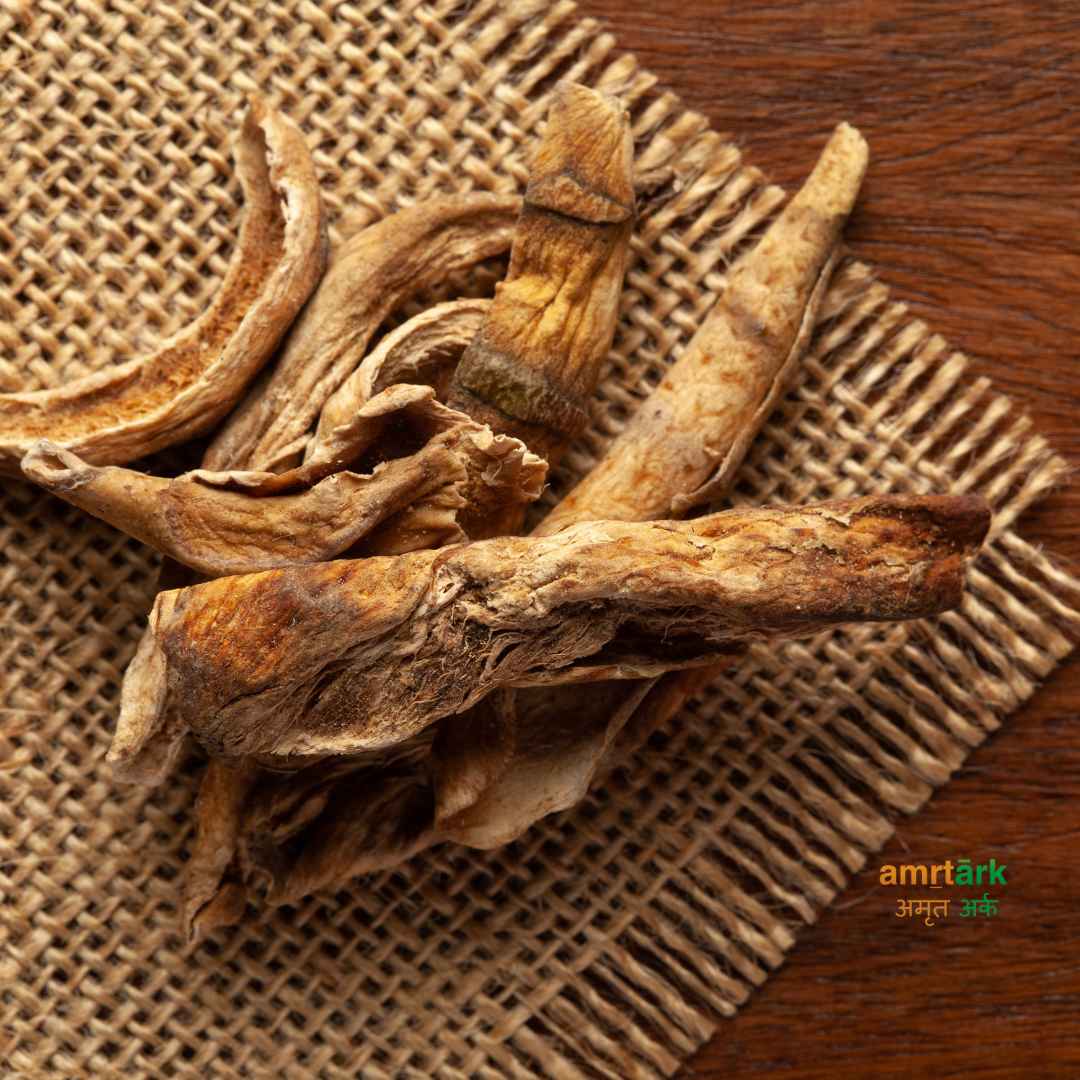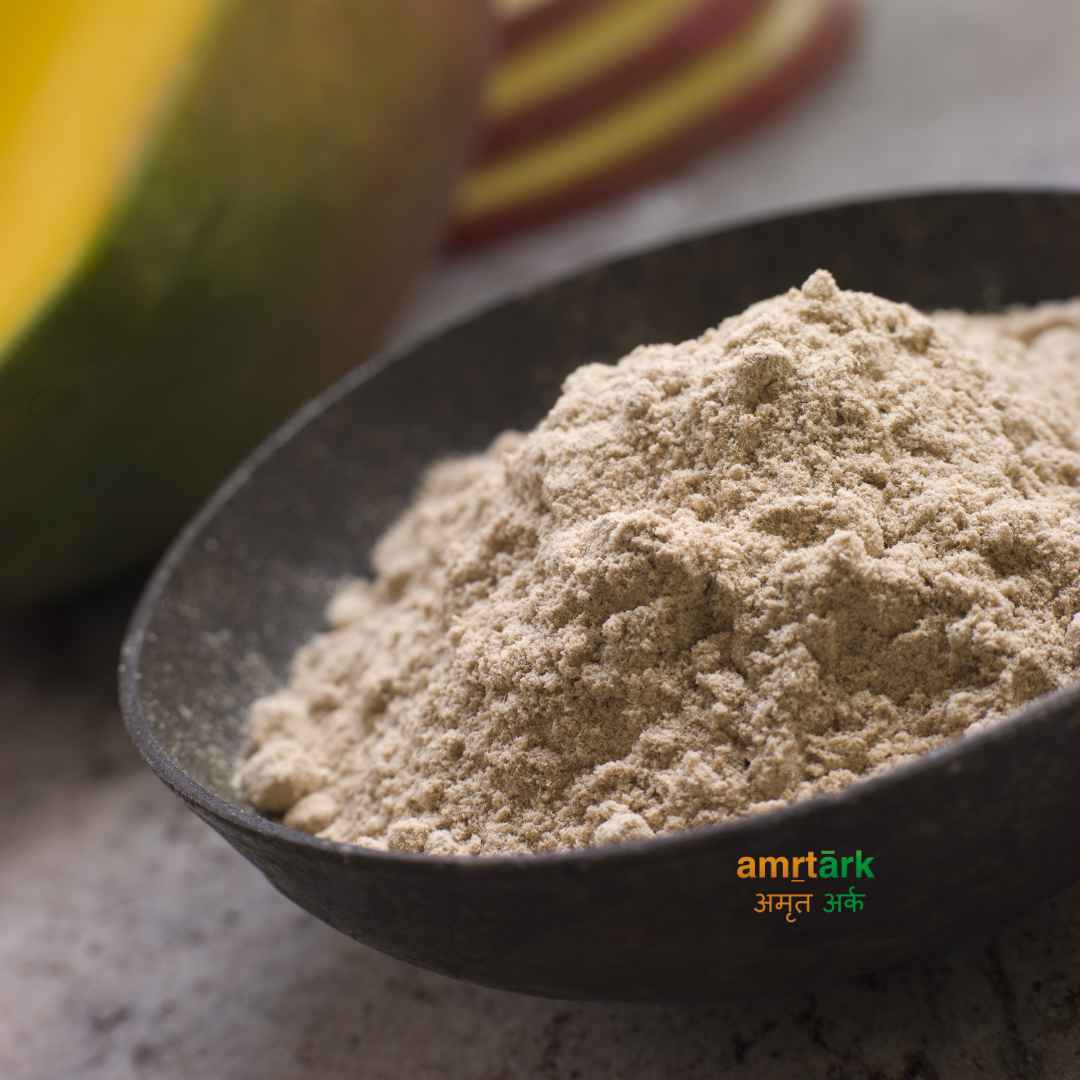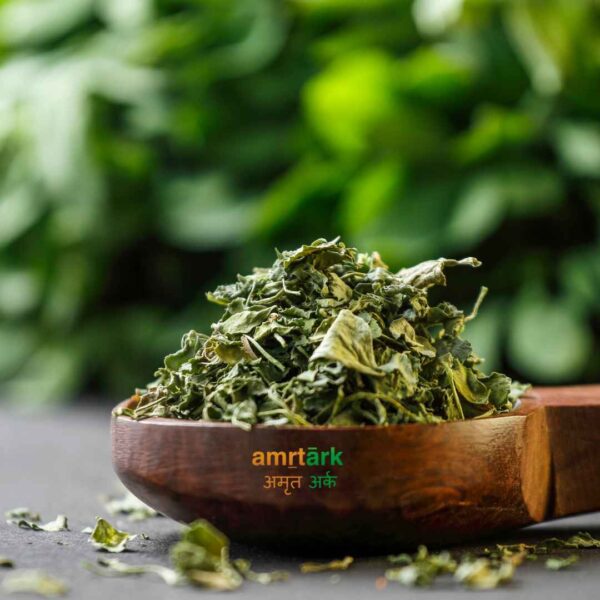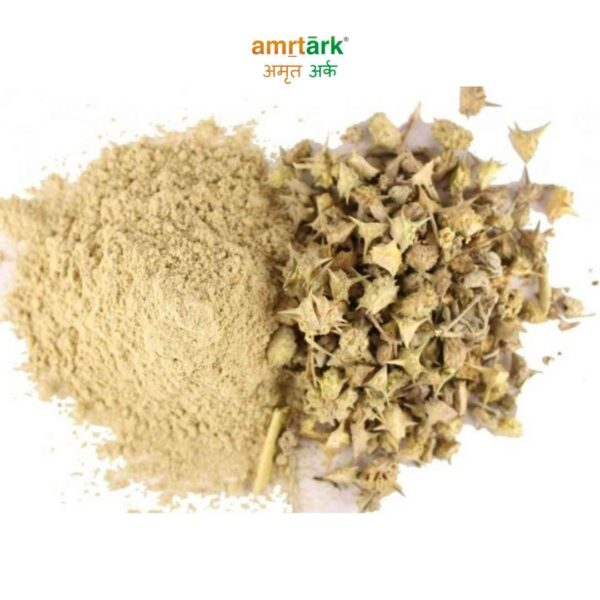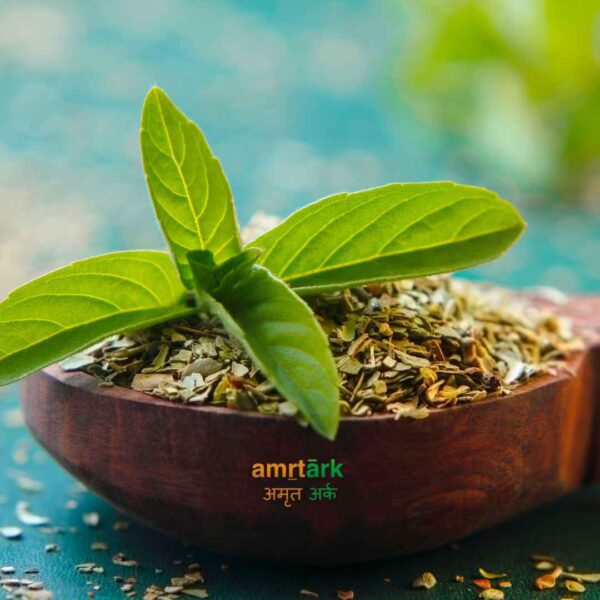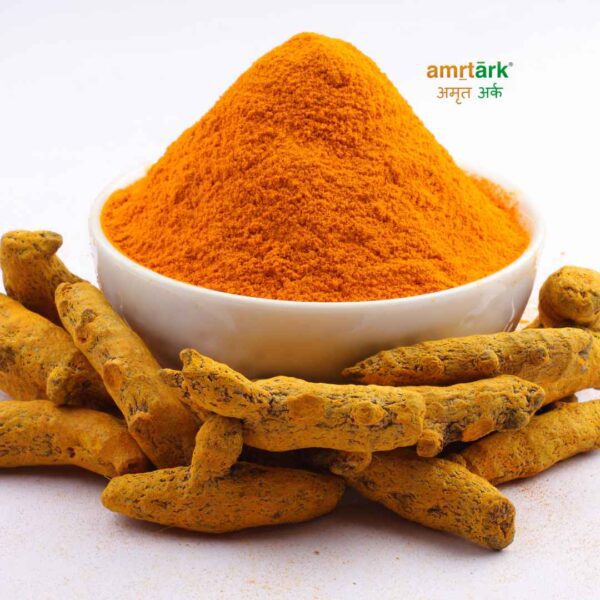Description
Amchoor (Mango Powder) – Mangifera indica
Amchoor, also known as Mango Powder, is a tangy spice made from dried, unripe green mangoes (Mangifera indica). It is widely used in Indian cuisine to add a sour, citrusy flavor to dishes without adding moisture. The name “Amchoor” is derived from the Hindi words “aam” (mango) and “choor” (powder). This spice offers a unique taste and is a common ingredient in chutneys, curries, marinades, and street foods.
Botanical Characteristics
- Common Names: Amchoor, Mango Powder, Dried Mango Powder
- Scientific Name: Mangifera indica
- Family: Anacardiaceae (same family as cashews and pistachios)
- Origin: India, particularly in states like Uttar Pradesh, Madhya Pradesh, and Gujarat, where mango cultivation is abundant.
Production Process
Amchoor is made by harvesting unripe green mangoes before they fully mature. The mangoes are peeled, sliced, and sun-dried until they lose all moisture. Once dried, the slices are ground into a fine powder, creating the spice we know as Amchoor.
Flavor Profile
Amchoor has a distinctively tangy, sour flavor, similar to that of green mangoes or lemons. It provides a bright acidity to dishes, balancing out sweetness or enhancing the taste of spices. The taste is reminiscent of citrus but is less sharp and more fruity.
Culinary Uses of Amchoor
Amchoor is a versatile spice in Indian and Southeast Asian cooking. It is used both as a seasoning and a souring agent in various dishes. Some common culinary applications include:
- Curries and Gravies: Amchoor is added to lentil and vegetable curries to give them a tangy kick. It brightens up the flavor profile without adding any liquid, unlike lemon juice or tamarind.
- Chutneys and Pickles: It is a popular ingredient in spicy and sweet chutneys. Amchoor is often combined with jaggery and spices to create sweet-and-sour chutneys, enhancing the flavor of snacks and appetizers.
- Street Food: In Indian street foods like chaat, pani puri, and bhel puri, Amchoor is a key ingredient in chaat masala, lending a tangy flavor that balances the spice and sweetness of these dishes.
- Marinades: Amchoor is used in marinades for meats, poultry, and fish. Its acidity helps tenderize the meat while imparting a fruity sourness that enhances the overall flavor.
- Vegetable Stir-fries and Snacks: Amchoor is sprinkled over stir-fried vegetables, roasted nuts, or grilled snacks like kebabs to give them a final burst of acidity.
- Pickling: Amchoor is also used as a natural preservative in the pickling process, helping retain the sour flavor while preserving fruits and vegetables.
- Spice Blends: Amchoor is a component of various Indian spice mixes, such as chaat masala, garam masala, and panch phoron, where it adds a tangy undertone to the blend.
Health Benefits of Amchoor (Mango Powder)
Amchoor not only adds a delicious sour flavor to dishes but also carries several health benefits, thanks to its rich content of vitamins, antioxidants, and minerals:
- Rich in Antioxidants: Since Amchoor is made from unripe mangoes, it retains many of the fruit’s original antioxidants. These antioxidants help protect the body from free radicals and oxidative stress, which are linked to chronic diseases like cancer and heart disease.
- Improves Digestion: Amchoor has traditionally been used to improve digestion. The enzymes present in unripe mangoes help break down food and enhance digestive efficiency, preventing indigestion, gas, and bloating.
- Boosts Immunity: The high vitamin C content in Amchoor makes it an excellent spice for boosting the immune system. Vitamin C is essential for producing white blood cells, which help fight off infections and diseases.
- Supports Weight Loss: Amchoor is low in calories but rich in fiber, which helps promote a feeling of fullness and supports weight management. Its tartness also stimulates appetite and digestion, making it beneficial in weight-loss diets.
- Detoxifies the Body: Amchoor is believed to have detoxifying properties. Its antioxidant and cleansing effects help eliminate toxins from the body, promoting overall health and skin detoxification.
- Improves Skin Health: The vitamin C in Amchoor supports collagen production, which is essential for maintaining healthy skin, reducing wrinkles, and improving skin elasticity. It also helps in healing wounds and reducing inflammation.
- Regulates Blood Sugar Levels: The fiber content in Amchoor helps regulate blood sugar by slowing down the absorption of sugars in the bloodstream. This can be helpful for people with diabetes or those managing blood sugar levels.
- Promotes Cardiovascular Health: Amchoor contains trace amounts of magnesium and potassium, which are beneficial for heart health. These minerals help regulate blood pressure and improve circulation, reducing the risk of heart disease.
Traditional and Ayurvedic Uses
In Ayurveda, Amchoor is used to balance the Kapha and Pitta doshas. It is considered cooling and is often recommended to improve digestion, cleanse the body, and boost metabolism. Amchoor is also used to treat respiratory conditions like asthma and to alleviate symptoms of scurvy, a disease caused by vitamin C deficiency.
How to Use Amchoor in Cooking
- In Spice Blends: Add a small amount of Amchoor to spice blends like garam masala or chaat masala to add an extra layer of tanginess.
- As a Souring Agent: Use Amchoor in place of lemon juice or tamarind in recipes where you want to avoid additional liquid.
- Sprinkling on Snacks: Lightly dust roasted vegetables, nuts, or snacks with Amchoor for a refreshing sour flavor.
- In Chutneys and Sauces: Use Amchoor to create tangy chutneys by combining it with jaggery, salt, and spices like cumin or fennel.
Side Effects and Precautions
While Amchoor is generally safe when used in moderation, there are a few precautions to consider:
- Acidic in Nature: Due to its high acidity, consuming large amounts of Amchoor may cause acid reflux, heartburn, or stomach irritation, especially in people prone to acid-related digestive issues.
- Allergic Reactions: Some individuals may experience allergic reactions to Amchoor, particularly those with a sensitivity to mangoes or other fruits from the same family.
- Pregnancy: Pregnant women should consult a doctor before consuming Amchoor in medicinal quantities, although small amounts used in cooking are generally safe.

